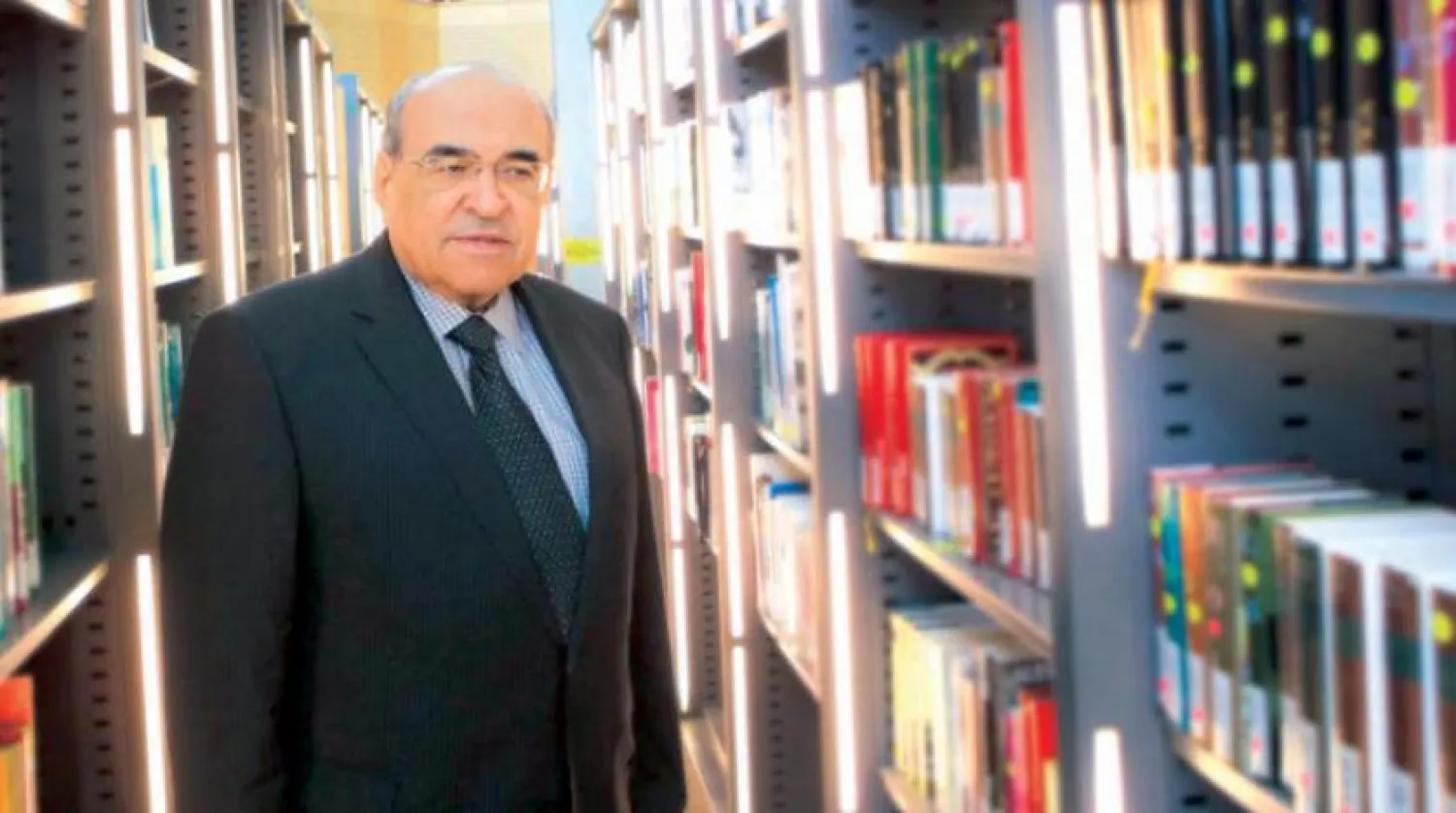Dr. Mostafa el Feki is a political, diplomatic, parliamentary and academic thinker and an astute analyzer of world developments. All these roles enabled him to become a worthy candidate to become the director of the Bibliotheca Alexandrina at a historic time for Egypt, which is engaged in a battle with terrorism.
Since his youth, he became involved in national and political work and refused to dwell on the past, an approach which is adopted by the Arab world and which is one of the reasons that widened the gap between it and the West. He firmly believes that Egypt is capable of leading the reform movement and combat terrorism.
Asharq Al-Awsat met with Feki at the Bibliotheca Alexandrina to discuss a myriad of topics and leaf through the pages of history and look forward to what the future holds.
He praised the reform process in Saudi Arabia, saying that this may be what that Arab world needs in the upcoming phase.
He said: “We hope that the reform would spread to Egypt and throughout the Arab world.”
This reform can be summed up in abandoning dwelling on the past and adopting a modern approach. This also includes abandoning Salafist and extremist thought.
Asked about the dispute between Egypt and Ethiopia over the Renaissance dam and fears of a clash between the two neighbors, Feki replied: “It is odd that they believe that Egypt’s hands are tied in this issue.”
“Egypt is an important country in the region. It overlooks two seas and has a major naval fleet and its military is among the top ten in the world,” he stressed.
“I do not imagine however that we could be headed towards a military confrontation or a war because Ethiopia is too smart to antagonize Egypt or act in a manner that would harm it,” he added.
Asked about Iran’s threat, he responded that the United States is garnering support to portray Iran as the enemy of Arabs and not Israel.
“If Iran were a danger, it is secondary to Israel, which is the real danger,” he said.
“Israel has an agenda of meddling in different parts of the Arab world, while Iran has the illusion of controlling the Arabs,” noted.
On how the Palestinian-Israeli conflict was no longer the primary concern of the Arabs, he stated that the Arab Spring greatly harmed this issue because it faded from Arab and nationalist agendas after each country became concerned with its own problems.
Commenting on his vision for the future of the Bibliotheca Alexandrina, Feki noted: “It is part of the cultural development of the Egyptians and his liberation from the chains of extremism, violence and terrorist trends.”
The library will focus in 2018 on combating extremism.
“Our attention will be directed at liberating the Egyptian mind from the factors that have led him away from the spirit of our age and taken him towards a skewed interpretation of religion,” he explained.
This plan includes addressing students at various religious and academic schools at the age when they are most susceptible to external influence.
“No one talks to those children and we do not know where they get their information. We want the library to be open to all sides. We want the library to make art and create life against those creating death,” he stressed.
Terrorism, he stated, has never toppled a regime or a country. It only thwarts a mission and depletes a people. Furthermore, a year or two is not enough to eliminate this phenomenon. This is a long battle and those who survive are the most patient and the ones who strike it not with military force, but with intellect.
“Extremists have never been able to build a nation. This is a passing phase in history and people and cultures must realize that the extremists will be defeated. This all depends on how honest western countries are in their statements on confronting terrorism or whether they are exploiting it to pressure the region,” Feki said.
Addressing Egypt’s 2030 strategy, he remarked: “We are part of the Egyptian state and social justice is not just about food, but it is about doses of culture.”
“The youth have the right to sufficient doses of culture. We do not want to control them, but we want to open doors that allow them to understand the world around them. This can only happen through social justice,” he went on to say.
“We want the library to act as a channel that connects the Egyptian youth with their Arab, African and international counterparts.”













